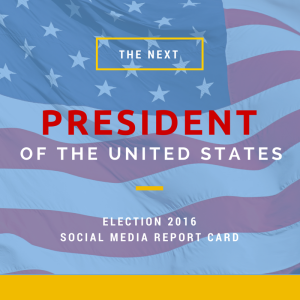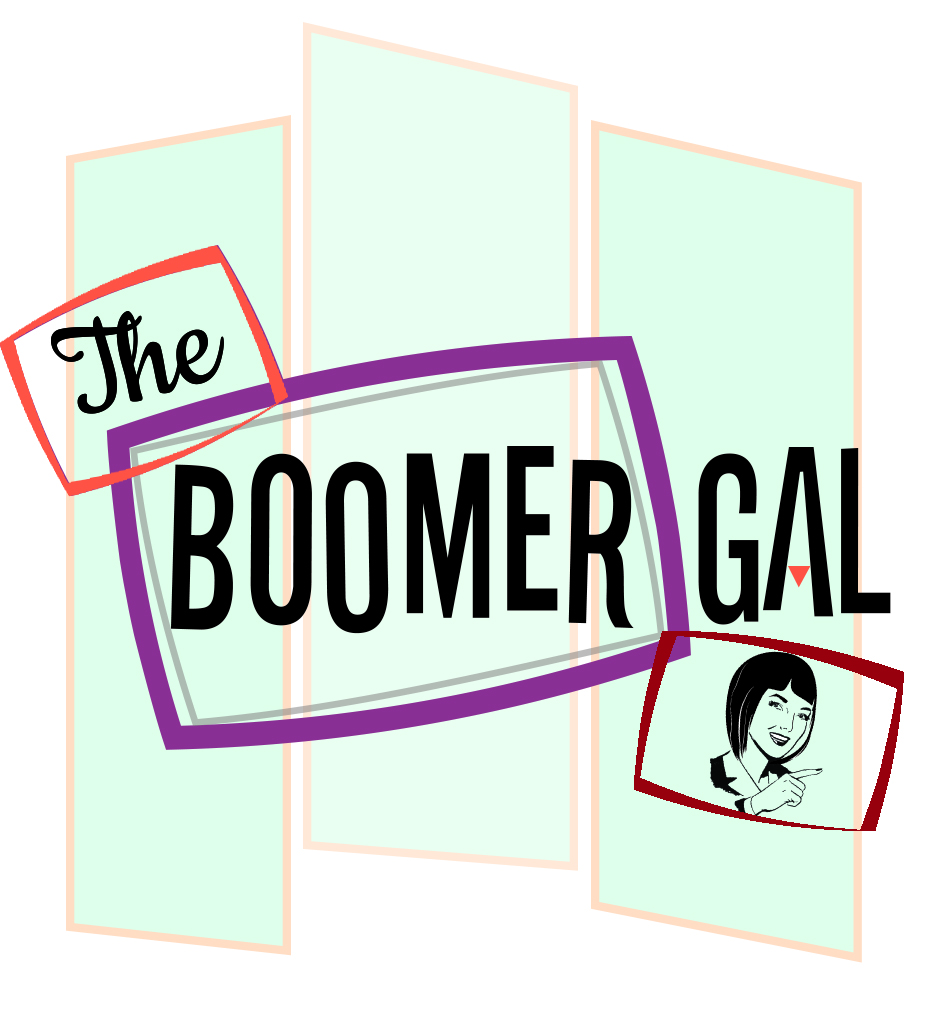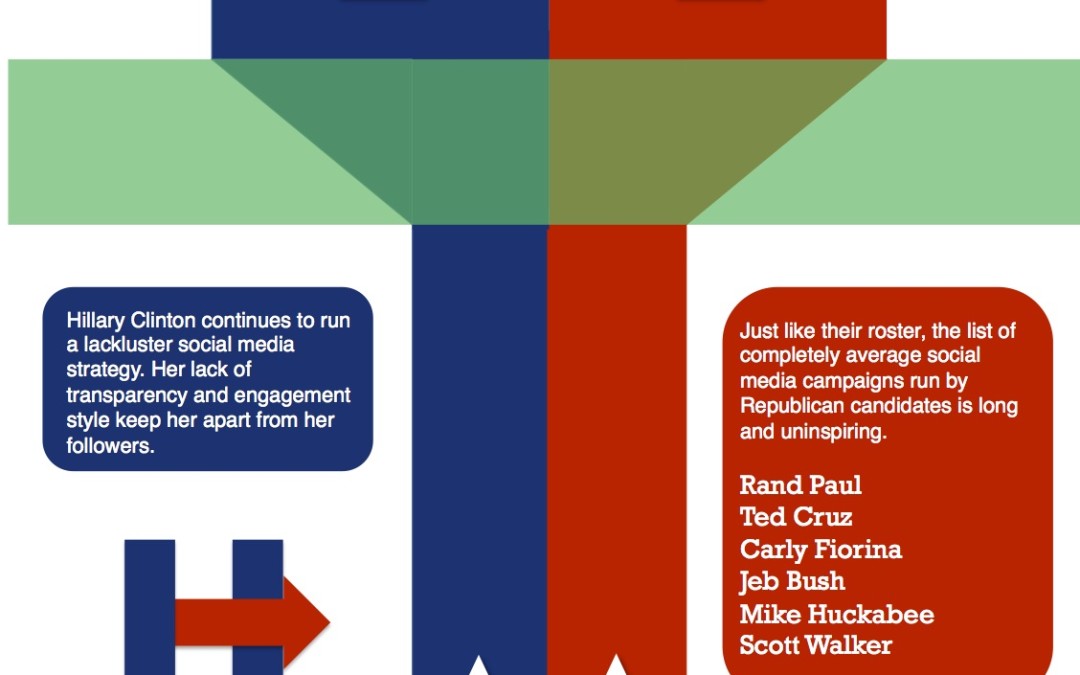 Election 2016 Social Media is proving to be an important predictor of candidate popularity. Is it a cause or an effect of changes in polling data among the twenty plus candidates vying for the highest office in The United States? I don’t think anyone knows for sure because research data is not set to monitor that question correctly.
Election 2016 Social Media is proving to be an important predictor of candidate popularity. Is it a cause or an effect of changes in polling data among the twenty plus candidates vying for the highest office in The United States? I don’t think anyone knows for sure because research data is not set to monitor that question correctly.
In May 2015, George Washington University’s Graduate School of Political Management released a report that the media summarized as evidence that Hillary Clinton was winning the social media wars.
“…it wasn’t just the number of times her campaign was mentioned that was significant: Clinton’s name was frequently shared with words like “champion,” “everyday,” and “Americans,” which the researchers believe demonstrates that people are taking her campaign messages seriously.”
Unfortunately, the university’s fundamental understanding of web technology and keyword usage was flawed. Either the media or GWU or both came to erroneous conclusions based on that lack of understanding.
The conclusion that Clinton was more popular was based on the number of times people used words like …. to refer to the candidate in social media. The reality is, the technology behind the candidate’s website attached those words to an image. Every time a fan chose to share the home page of the Clinton campaign on social media, those keywords followed the image, as the technology is supposed to do when good search engine optimization (SEO) practices are used. It was not a conscious decision by the follower, but a byproduct of technology. That is not evidence of common belief as the GWU report and media profess.
For the 16 weeks that I have been tracking the candidates on Facebook and scoring their efforts, my hypothesis continues to gain traction. The candidates with the better social media strategies and implementation of strategy are seeing gains in the polls. Here is the July 2015 Social Media Report Card for #Election2016.



